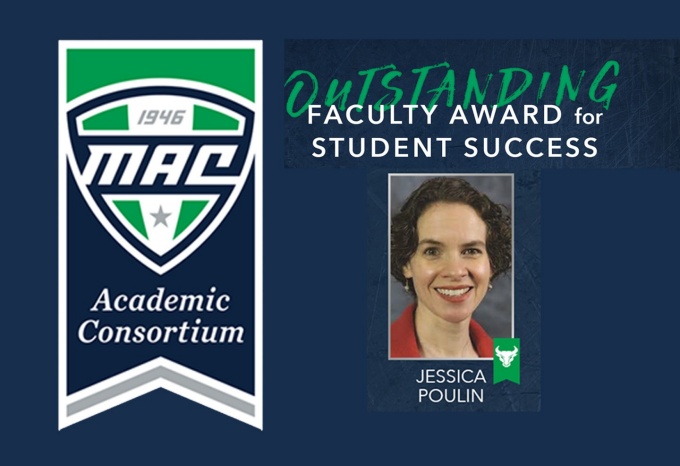Jessica Poulin wins MAC 2022 Outstanding Faculty Award for Student Success

Published March 8, 2022
The Department of Biological Sciences is pleased to announce that Dr. Jessica Poulin, Clinical Associate Professor, has won the 2022 Mid-American Conference (MAC) Outstanding Faculty Award for Student Success. She is among the twelve institutional winners recognized for their outstanding efforts to support and develop students both inside and outside of the classroom. She is past recipient of the Milton Plesur Excellence in Teaching Award, and, the UB Teaching Innovation Award.
The MAC announcement contains a profile of Dr. Poulin's work with our students:
"She arrived in Fall 2008 to redevelop the 1st year curriculum for Biological Sciences, and created an innovative “Introduction to Evolution” introductory biology lecture and lab course focused on fusing classroom instruction with experiential, laboratory-based investigations. Dr. Poulin is currently the coordinator of this three-section course, serving ~1400 students per year. Since developing this course, her role has greatly expanded, and she is now the director of the Departmental Honors Program for Undergraduates and teaches multiple 400 level evolution courses.
Helping students succeed in UB’s large undergraduate format has defined her career, and she serves on numerous departmental, college, and university-wide committees focused on improving the undergraduate experience. She has been honored by UB’s Student Association for Excellence in Teaching, been chosen as the Student Choice Faculty Speaker for commencement, received a Teaching Innovation Award, and is consistently among the most highly student reviewed professors at UB. Dr. Poulin maintains this level of student appreciation while also being well known for teaching difficult courses with high levels of rigor.
By implementing strategies to support mastery of challenging material, her students grow and develop into independent scholars who can pursue their passions – even when those dreams end up having little to do with Evolution or even Biology. She is one of UB’s founding members of Women in Science and Engineering and has been committed to diversity and inclusion in Biology and beyond." See full annoncement.